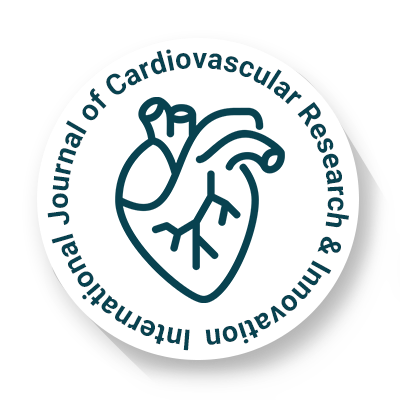
International Journal of Cardiovascular Research & Innovation
OPEN ACCESS

OPEN ACCESS

Department of Zoology, North Odisha University, Odisha, India
Cardiovascular disease (CVD) is a leading cause of global morbidity and mortality, with diverse causes including lifestyle, environmental, and genetic factors. Biomarkers have traditionally supported CVD detection, prevention, and management, with LDL-cholesterol, high-sensitivity C-reactive protein (hs-CRP), and troponin offering diagnostic insights. However, their specificity and predictive power are limited. Recent discoveries have identified novel biomarkers like genetic polymorphisms, epigenetic modifications, and circulating microRNAs, which provide deeper insights into CVD pathophysiology. Technologies like metabolomics have introduced biomarkers such as trimethylamine-N-oxide (TMAO), linked to CVD risk and potential therapeutic targeting. These innovations promote a personalized CVD treatment approach, tailoring therapies to individual risk profiles. Pharmacogenomics advancements further enhance drug selection and dosing accuracy. Nonetheless, challenges remain, particularly in validating and integrating these biomarkers into routine clinical practice. This minireview explores established and emerging CVD biomarkers and their role in advancing personalized medicine, potentially revolutionizing CVD management through improved risk prediction, early diagnosis, and precise treatment strategies.
Department of Zoology, North Odisha University, Odisha, India